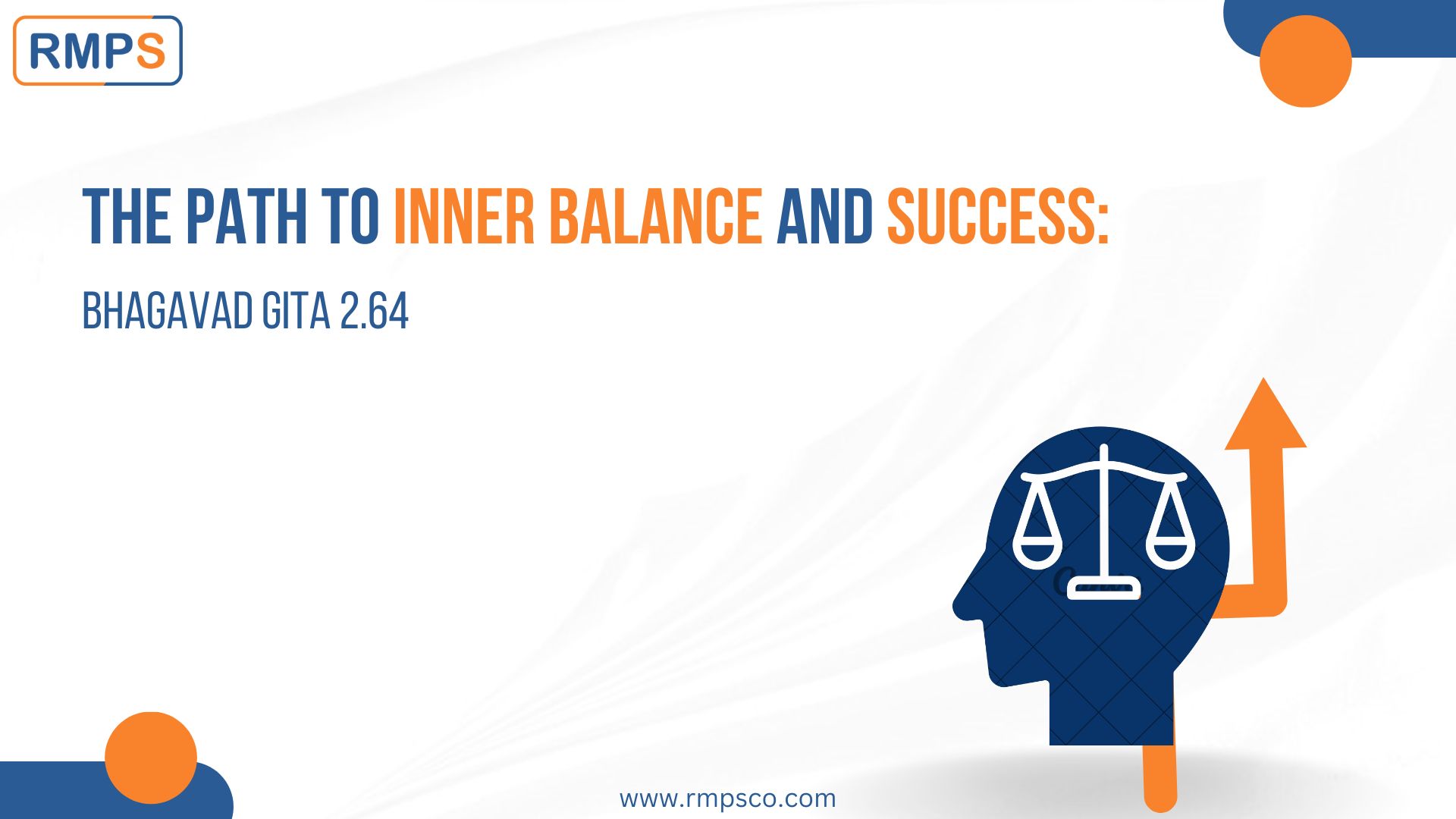
Sanskrit Verse:
रागद्वेषवियुक्तैस्तु विषयानिन्द्रियैश्चरन् |
आत्मवश्यैर्विधेयात्मा प्रसादमधिगच्छति ||
Translation: “But a person free from attachment and aversion, who moves among sense objects with self-control and discipline, attains inner peace.”
Understanding the Verse
In this verse, Krishna emphasizes self-discipline and detachment as the key to inner peace and wisdom. He explains that a balanced individual navigates life without being swayed by extreme likes (attachment) or dislikes (aversion). This wisdom is crucial for entrepreneurs who need to make rational, objective decisions without being controlled by emotional reactions.
Entrepreneurial Insights from Verse 2.64
1. Emotional Detachment Leads to Better Decision-Making


- Kodak was too attached to film cameras and ignored digital photography, leading to its downfall.
- Netflix, on the other hand, remained detached from its DVD rental model and successfully transitioned to streaming.

- Evaluate business decisions with logic, not emotions.
- Be open to change—adapt to evolving market trends.
2. Self-Control Over Impulses Brings Long-Term Success


- Elon Musk takes calculated risks, investing heavily in SpaceX and Tesla but always focusing on long-term impact rather than short-term gratification.

- Before making major decisions, pause and reflect: Is this decision driven by wisdom or impulse?
- Use structured thinking—analyze risks, ROI, and sustainability.
3. Maintaining Inner Balance Amid Business Challenges for Success


- Jeff Bezos built Amazon with a steady, long-term vision—he never overreacted to market criticism or short-term losses.

- Detach from external praise or criticism—focus on long-term goals.
- Cultivate daily mindfulness or journaling to develop emotional resilience.
Practical Strategies to Apply Verse 2.64 in Business for Success




The Entrepreneur’s Path to Balance
Bhagavad Gita Verse 2.64 teaches that freedom from attachment, combined with self-discipline, leads to clarity and inner peace. Entrepreneurs who embrace detachment, self-control, and focus build businesses that thrive beyond emotional extremes.
LinkedIn Link : RMPS Profile
This article is only a knowledge-sharing initiative and is based on the Relevant Provisions as applicable and as per the information existing at the time of the preparation. In no event, RMPS & Co. or the Author or any other persons be liable for any direct and indirect result from this Article or any inadvertent omission of the provisions, update, etc if any.
Published on: March 21, 2025
